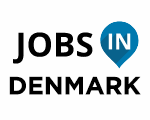The working conditions in Denmark are generally very good, with companies happy to invest in modern facilities and equipment of the highest quality. Many employees are given the chance to progress further in their field. This often comes in the form of continuous training and education offered by the workplace.
Danish working mentality
The vast majority of Danish workplaces have a horizontal structure and prefer to operate around teamwork rather than giving instructions to subordinates. Workers are encouraged to contribute their ideas and to be pro-active in their participation. You will find a lot of open dialogue between management and employees too, which may explain why many Danes take a great interest in their work and come across as highly motivated and committed to the task.
The egalitarian nature of the Danish working culture means people are expected to be humble. While in some countries it is normal to project yourself positively at work, Danes generally respond better to modesty and politeness. Everybody wants to make an immediate impression in a new job but, in Denmark, showing off your knowledge and skills is not the way to achieve this! The Danes would much rather see that you are there to help the team.
Salaries in Denmark
Salaries in Denmark vary according to two things: your qualifications and whether you work in the public or private sector.
If you are employed in the public sector, it is likely that your salary will be determined by the collective agreement made by trade unions and employer associations. Employment conditions are generally regulated by various parties in the labour market. However, there is a growing trend that employees are able to negotiate other personal bonuses with their employer.
Trade unions have less influence on the salaries of those employed in the private sector. Each individual employee tends to negotiate their salary with their employer.
Danish working hours
In general, a working week in Denmark is 37 hours divided between 5 days. Employees in Denmark are usually expected to complete the necessary amount of working hours from Monday to Friday between 06:00 and 18:00.
Public sector employees are often paid normal working hours during their lunch breaks, whereas private sector employees do not usually get paid for their lunch break. This concept is not a steadfast rule, and can vary between different companies. In any case, lunch breaks in Denmark tend to be for 30 minutes.
Holiday entitlement in Denmark
Holiday entitlement in Denmark is fairly generous. The ‘holiday year’ in Denmark runs from 1st May until 30th April. Every employee in Denmark receives five weeks’ leave per year, as long as they have worked for one calendar year before the beginning of the holiday year.
If the employee has not completed a full calendar year, they are entitled to 2.08 days of holiday for every month in which they have been employed. Any employee who has not earned their full five-week holiday allowance is still entitled to take up to five weeks per year as unpaid holiday.
All other employees will receive their normal salary during holiday as long as: they are paid on a monthly basis; they receive full pay in the event of illness and on public holidays; and they have been in continuous employment from the start of the holiday year until the time at which the holiday is taken. Employees who do not meet the above criteria will receive the same holiday allowance, except their pay will be a percentage of their salary rather than their usual salary.
If you move between jobs in Denmark, you take your paid holiday entitlement with you. Your former employer has to work out how much holiday allowance you have remaining, and can then either transfer it or provide you with a holiday card. In any case, the employee will receive any due payments at a later date when the holiday has been taken. If you move to a new job in a different country, the money can be paid before you leave.


